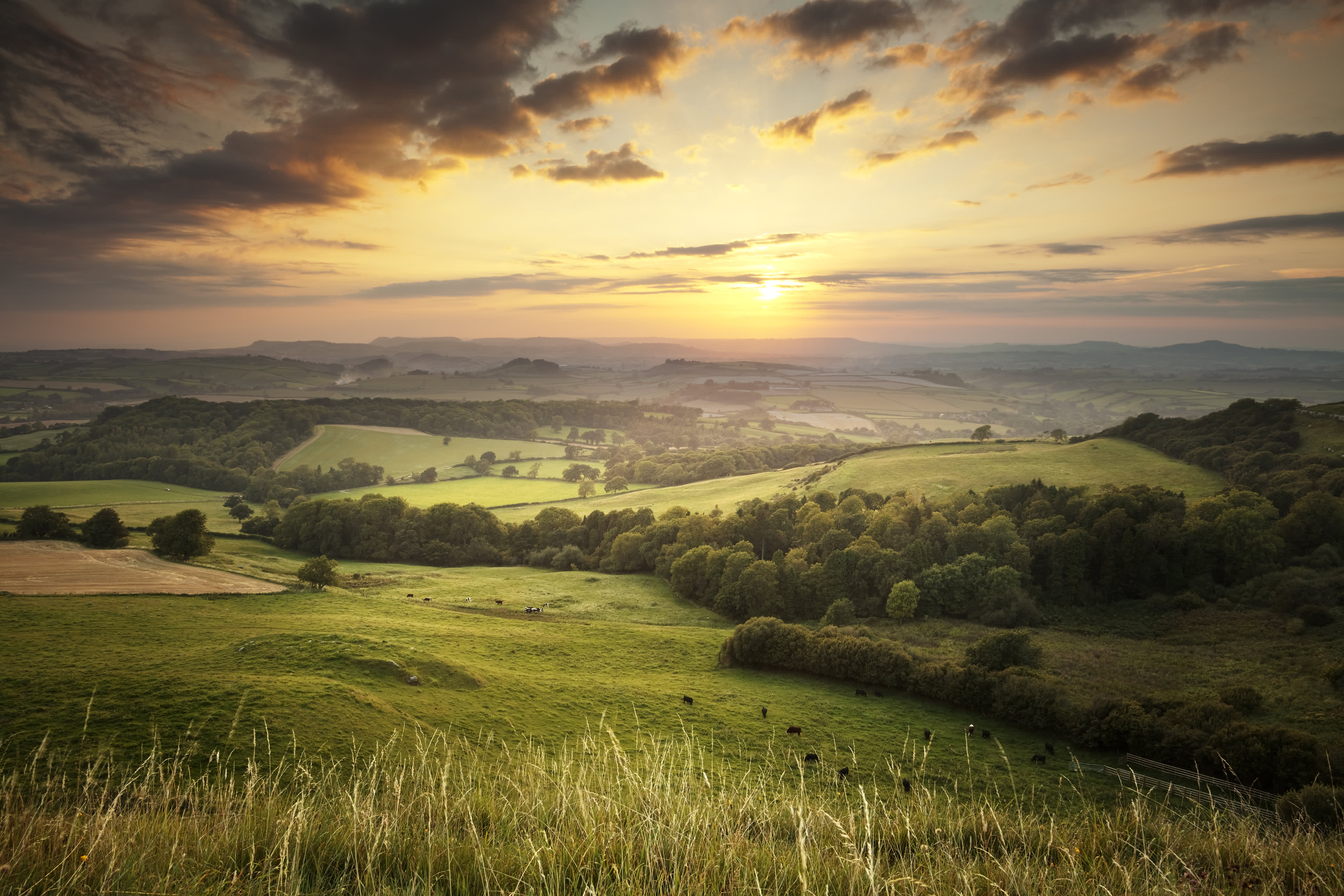
How to Set Up a Pop Up Campsite
Fancy using your property as a campsite but only during the summer months? You can, as a pop up campsite!
A pop up campsite is a simple solution providing camping facilities for guests without expensive start-up costs, investment and infrastructure - and more importantly, without planning permission. But hold up - we’re not quite done yet. You don’t need a licence or permit under the current rules but there are specific steps to take depending on what facilities and/or type of campsite you would like to open. These can change from year to year and vary between councils. So make sure you inform yourself before going further.
There has been a huge surge in staycations over recent years. This is partly due to the difficult and challenging times we have all gone through - but Covid-19 aside and unbeknown to a lot of us holidaymakers, the UK offers some absolutely awesome outdoor inspired campsites - and the additional measures introduced has facilitated businesses in setting up their own pop-up campsite.
“From the period features of limestone houses in the Cotswolds to the beautiful fells of the Lake district, the UK has an abundance of scenic landscapes oozing to be relished by many outdoor lovers”
In 2020 the rules were adjusted and the UK Government allowed businesses to set up pop up campsites without the need for planning permission or a license - known as Permitted Development Rights (PDR).
So what exactly is a pop up campsite?

So what exactly is a pop up campsite? - Featured accommodation
A pop up campsite is a field or open space which can be used temporarily as a campsite - usually with minimal facilities. Temporary is the key word here however. The rules state that any pop up campsite facilities must be completely removable without affecting the landscape or land. This includes hard standing pitches and any buildings/toilets.
It sounds like a lot of work we hear you say. Well, it's more work than heading out to your local pub to order your favourite pint (that can wait until the end of the season when you’ve realised your pop up campsite has done spectacularly well and you’re bathing in great reviews).
Getting Started

Getting Started - Featured accommodation
The first point of call is to contact your local council. You can do this by heading over to the Camping Licence Government page and enter your postcode. This will then give you the necessary details to contact your local council.
If you would like to include Caravans and/or apply for more than the 56-day rule in England and Wales then head over here.
There is also a handy list on the Local Gov website of all the local councils and contact details.
Make sure you have a clear plan on what you are expecting to achieve and how you will achieve it. Here are a few things to consider and is a great way to ensure you have abided by all rules when your local Council comes to inspect;
Where your pop up campsite farm/field is located
Duration you expect to run as a pop up campsite
A site plan
Proposal of temporary facilities
Sustainability
Environmental impact (both positive and negative)
Local community impact (both positive and negative)
If you do need a licence, obtaining one is not free. The fees can vary depending on each council and can range from £0 to over £500.
Rules and Regulations

Rules and Regulations - Featured accommodation
Currently, the UK Government rules state you are eligible to run a pop up campsite for up to 56 days of the year without the need for a licence or planning permission.
Tents
There are no specific rules on the number of tents allowed on a pop up campsite. Bell tents and yurts are allowed as long as there is no need to sit them on hard standing ground or a foundation which cannot be removed once the site is closed.
Caravans and motorhomes
As a pop up campsite you are not eligible to offer facilities and pitches for caravans and motorhomes. For this you will need to apply for either a Caravan/motorhome license or planning permission depending on the number of pitches available for the above.
Employers’ Liability Insurance (EL)
If your staff are all family members you may not need any liability insurance. If this is not the case and you are looking to employ staff, then this is a legal requirement. Read more about Employers’ Liability (EL) insurance here.
Exceptions to the licensing rules
You do not need a license to run a campsite all year if you are part of (but not limited to) the following clubs: The Caravan and Motorhome Club, the Greener Camping Club and the Camping and Caravanning Club.
These clubs all offer “exemption certificates” for landowners, subject to inspection and checks of the land prior to issuing the certificate. These exemption certificates are possible throughout the UK. Contact the clubs individually for more information.
Water/Toilet facilities
If your site does not have its own independent piped water supply you are required to have available clean water via water dispensers or water tanks for general use.
While there is no legal requirement for toilet facilities, we would encourage these as these aid in creating a clean and sustainable approach to a campsite. Disposal of any waste should be done in line with local council guidelines. Check out the Government guidelines and links here for more information/contacts. Search for “portable toilets UK” for companies who can provide these facilities.
Covid-19 measures
Ensuring that both campers and site owners are fully protected and following any current guidelines is paramount. For this reason we suggest any pop up campsite carefully reads and follows any restrictive measures in their area. Ways to implement good and safe measures includes the NHS QR codes or the NHS Track & Trace (by collecting details from all customers entering the site).
Please read through and implement any suggested measures from the UK Governments official Covid-19 Risk Assessment program.
Stand Out From The Rest

Stand Out From The Rest - Featured accommodation
So you’ve decided to go ahead and start a pop up campsite - great! How are you going to stand out from others? With a few ingenious and ‘out of the box’ ideas your pop up campsite could really prove to be a great success (hey, you might even apply to have a permanent site).
Facebook and social media
A must if you are new and want to get your name out. Having an online social media page gives you great exposure if done correctly. It's great media for the younger generation and nowadays more and more campsites are joining. Use it to showcase your facilities, attractions and improve traction for bookings. Make sure your pictures are awesome.
Farm campsite
If your field is part of your livestock farm, why not integrate this into additional activities or attractions? There is a huge interest in farm campsites that allow children (and adults) to meet and greet the local animals, feed them and if you are lucky get to see a birth! Adding this feature not only creates a better image for your website/booking page but also helps educate those who visit.
Local produce
If you are located in an area full of local produce, whether it be farming, agriculture, fruit picking or local shops with the best of the region - it's a great way to promote the local area with your campsite. Links to products and produce on your website or at your campsite creates a wholesome experience to holidays.
Local attractions
Are you close to the Goodwood Festival of Speed? Or a stone’s throw from Glastonbury? Well you should be shouting about this across your online presence and advertising. These sorts of attractions generate a huge influx of tourism.
Artisanal products
Does someone local or even in your family make beautiful homemade products? Perhaps necklaces or holiday gift ideas? These are a great way to send your happy campers back home with a perfect souvenir (and a tan!).
Useful links
Camping Licence (England and Wales)
Caravan Site Licence (Northern Ireland)
Covid-19 Risk Assessment guidelines for pop up campsites
https://www.gov.uk/managing-your-waste-an-overview
Q&A
Can I operate a pop up campsite for 56 days spread over different seasons?
Yes. The limite of 56 days is cumulative, so you can open and close as you require as long as the total number of days as a campsite does not exceed 56 days.
Please note that in between these times you are required to return the field to its original state.
Can I leave facilities (portable toilets or tents for example) up in situ during times in which the campsite is not in operation?
No. Any day that includes removable facilities and/or tents with a pop up campsite purpose will count towards your 56 days.
Can I set up a glamping site?
Glamping facilities tend to require additional permissions as they can be considered more permanent facilities. Glamping pods, Shepherds huts and other similar types of accommodation usually need hard standing foundations and/or electric/water supply and therefore will not fall under the current 56-day pop up camping licensing rules.
Is there a limit to how many pitches and/or maximum number of people allowed on a site?
No. There is currently no limit on the maximum number of people on a pop up site. This may however depend on the local council which ultimately will have a final say on whether a maximum number is imposed or not.
Are cars allowed on to a pop up campsite?
Yes. Currently there are no rules against cars on site.

